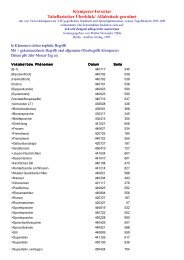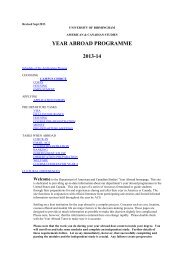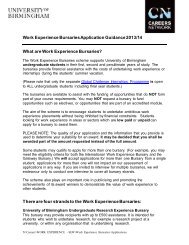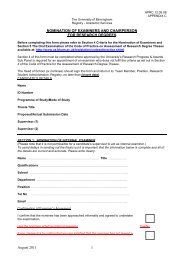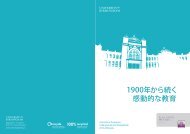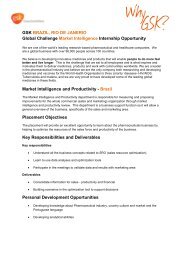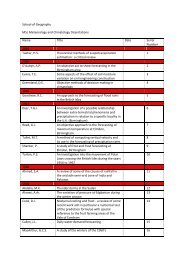APRC 120202 appendix 2 (PDF - 958KB) - University of Birmingham
APRC 120202 appendix 2 (PDF - 958KB) - University of Birmingham
APRC 120202 appendix 2 (PDF - 958KB) - University of Birmingham
- No tags were found...
You also want an ePaper? Increase the reach of your titles
YUMPU automatically turns print PDFs into web optimized ePapers that Google loves.
2.4 When seeking approval for placement learning opportunities, within new or existingprogrammes, Schools should address requirements laid out in Section 3, as appropriate.3 Placement Learning: Academic Programme & Management3.1 Strategic Fit <strong>of</strong> the Placement.1 Schools should establish relationships with organisations or institutions whose missions andnational or international standing are comparable to its own..2 Schools should determine that a placement provider is able to:(a) Provide learning opportunities which enable the intended learning outcomes to beachieved. These learning outcomes should be identifiable.(b) Support students during their placement.(c) Fulfill their responsibilities under health and safety legislation in the workplace, havingregard to the level <strong>of</strong> skill and experience <strong>of</strong> students on a placement..3 For placements which take place in an academic institution, Schools should normally assessthe academic facilities <strong>of</strong> the placement provider, such as library and computing provision,academic accommodation and teaching facilities and facilities for students with specialneeds to ensure that they are <strong>of</strong> an acceptable standard for students registered at the<strong>University</strong> <strong>of</strong> <strong>Birmingham</strong>..4 Where a School is proposing a new exchange partner for study abroad, the School will beexpected to demonstrate to the Programme Approval Review Committee that due diligenceon the above points has been undertaken. This will be demonstrated through the completion<strong>of</strong> the “Proposal to add a new placement” Form.3.2 Restrictions on Provision <strong>of</strong> Placement Learning opportunitiesStudents from non-EEA countries.1 Schools should consider carefully the implications for students from non-EEA countries whenconsidering the addition <strong>of</strong> a placement to an existing programme <strong>of</strong> study or whenconsidering a new programme with placement provision. While it may be possible forstudents from non-EEA countries to undertake placement learning, it is very important toremember that these students are not automatically guaranteed a visa for entry to anothercountry for the duration <strong>of</strong> their placement and will still need to meet rigorous applicationcriteria and make an application in good time to start any potential placement. It is thereforerecommended that the Schools contact the International Student Advisory Service (ISAS) asearly as possible (http://www.as.bham.ac.uk/studentlife/international/index.shtml).Additional language or skills preparation.2 Schools should consider carefully the level <strong>of</strong> written and oral linguistic competence requiredbefore a student is permitted to undertake a placement. This will clearly vary depending onwhether or not modules taken overseas will contribute towards the <strong>Birmingham</strong> degree.Quota.3 Schools should also take into consideration whether they wish to place any restrictions onparticipation <strong>of</strong> students on a placement opportunity. For example, the placement



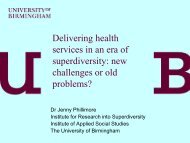
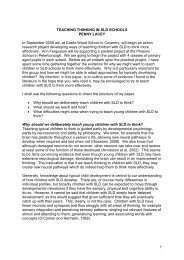
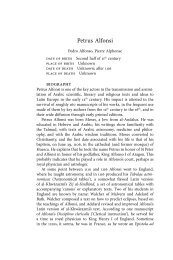
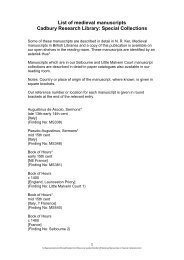
![Benyamin Asadipour-Farsani [EngD Conference abstract]](https://img.yumpu.com/51622940/1/184x260/benyamin-asadipour-farsani-engd-conference-abstract.jpg?quality=85)

